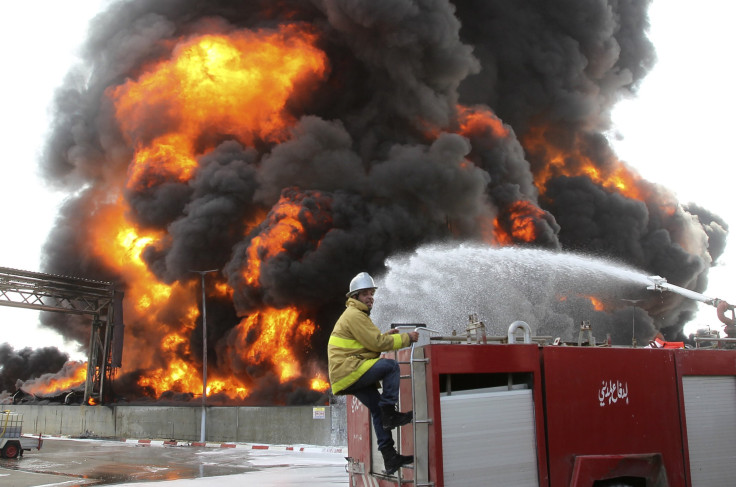Gun Battle Kills 23 Palestinians And 10 IDF Soldiers After Gaza Media Buildings Bombed

The sole power plant in Gaza has been destroyed by Israeli strikes that began Monday and have continued into Tuesday, reports said.
At least 10 Israeli soldiers and 23 Palestinians were killed when more than 150 targets in Gaza were fired at early Tuesday even as the possibility of a cease-fire between the Israeli government and Hamas collapsed with the latest offensive.
Five of the 10 Israeli soldiers killed in the past 24 hours faced Hamas gunmen who crossed a tunnel into Israel and fought with them, reports said. The remaining five soldiers were killed in exchanges of fire through early Tuesday, following Israeli Prime Minister Benjamin Netanyahu’s warning Monday of a protracted conflict. The Israeli military also reportedly attacked several targets in Gaza, including the residence of Ismail Haniyeh, Hamas’ political chief, Gaza's Ministry of Finance, Al-Aqsa Radio and Al-Aqsa Television.
Although Al-Aqsa Television continued to broadcast programs, its radio arm fell silent after the attacks on its buildings, according to Haaretz, an Israeli news agency. More than 50 people were also wounded in the attacks that continued into early Tuesday, which followed Monday’s bombing of Shifa hospital in the Gaza Strip and at Shati refugee camp, on Gaza’s outskirts, which reportedly killed at least 30 people.
The bombings, which began Monday night and continued through dawn on Tuesday, were the most intense since Israel began Operation Protective Edge three weeks ago, according to Associated Press, or AP. Despite international observers, including the United Nations, calling for a cease-fire, leaders of both sides have refused to back down.
"We need to be ready for a prolonged campaign," Netanyahu said Monday, according to AP, adding: "We will continue to act aggressively and responsibly until the mission is completed to protect our citizens, soldiers and children."
However, an Israeli military spokesman said Monday that the conflict in Gaza could be over by the end of this week, if Israel can ensure Hamas does not rebuild its tunnels.
The overall death toll in Gaza is now estimated at 1,110, AP reported, citing a health official, adding that Israel has lost nearly 53 soldiers, two civilians and a Thai national in the violence.
"His (Netanyahu’s) threats do not scare Hamas or the Palestinian people, and the occupation will pay the price for the massacres against civilians and children," Hamas spokesperson Sami Abu Zuhri said, according to AP.
© Copyright IBTimes 2024. All rights reserved.












